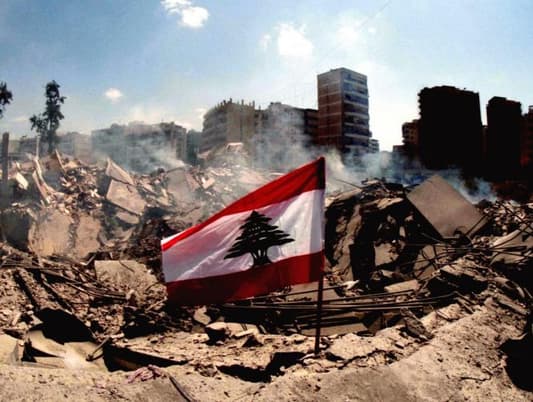Conversations with Israelis these days tend to end up in one place: casus belli. Specifically, the casus belli - the one that will spark the next war in Lebanon. For those wondering how the Third Lebanon War will begin, Israelis of various political stripes agree: if Hezbollah moves its precision missiles to the southern border of Lebanon, Israel will retaliate with force.
This is not new information. After their losses in the Second Lebanon War in 2006, the Israeli Defense Forces reviewed their military mistakes, preparing for the next clash with Hezbollah. In September 2017, the IDF launched a war game simulating such a clash. IDF troops practiced shifting from a defensive to an offensive posture and executing manoeuvres designed for the terrain of South Lebanon. Considerable intelligence resources have been directed toward assessing just how well Iran has armed Hezbollah over the last ten years. If Israel underestimated the Party of God in 2006, they will not do so again - most agree that IDF top brass is preparing for a protracted, messy war.
Israel isn’t necessarily trying to avoid this war, however ugly it promises to be. Indeed, Israelis generally agree the clash is unavoidable, and possibly opportune, given the current situation in Lebanon. Although Hezbollah’s current tactical capacity dwarfs their 2006 arsenal, it is an open secret that Hezbollah’s involvement in the Syrian war has been costlier than Hassan Nasrallah wishes to admit. Certainly, Hezbollah’s commandos now have substantial combat experience, but personnel and hardware losses - not to mention the complicated political knot Assad has tied the region into - means that Nasrallah and his deputies have little incentive to start a conflict on their own turf.
An emphasis on ground manoeuvres suggests that, when the spark hits the tinder, the IDF plans to use its superior power to force Hizbullah into conventional warfare - a far cry from the Second Lebanon War, where the IDF relied on aerial bombing to secure South Lebanon. Using airpower to destroy Hezbollah’s Katyusha missiles was a losing strategy. Indeed, as Daoud’s article argues, there is substantial reason to believe the coming war will look a lot more like the First Lebanon war of 1982. If this is the case, Hizbullah will likely adopt the tactics of the PLO in 1982: making ground invasion as costly as possible for Israel, Lebanon, and the international community.
What is a superpower to do? If both sides, to a certain degree, believe war is inevitable, exhortations for restraint and diplomacy will fall on deaf ears. Without moral or strategic leadership, the United States cannot stop Nasrallah or Netanyahu from embarking on a foolish war. Instead, the U.S. should consider its possible future position carefully, and prepare for an inevitable test of its regional alliances and global position.
First, the United States must acknowledge that an Israel-Hezbollah clash will eventually develop into an Israel-Lebanon war. Hizbullah’s political party is the critical partner in Lebanese President Michel Aoun’s ruling coalition, which came to power after two years of parliamentary stalemate. Aoun, a Maronite Christian, allied with Nasrallah in part because of lingering bad blood between Lebanese Christians from the last period of the civil war. Aoun enjoys great personal loyalty from major sectors of the Lebanese Armed Forces, a body receiving substantial U.S. support. The potential complications arising from a likely scenario in which the LAF participates in the fighting between Hezbollah and the IDF are obvious.
Second, the United States must also acknowledge that a war in Lebanon poses an existential threat to Jordan. Lebanon hosts 2 million Syrian refugees, and during the Lebanese Civil War, nearly 1 million Lebanese fled the country. Jordan’s own Syrian refugee population is estimated at around 2 million, in addition to the millions of other refugees - mostly Palestinian and Iraqi - who have lived there for years. An influx of additional refugees would seriously threaten Jordan’s stability, upon which the region has relied for decades.
Another U.S. administration might see in this gathering storm the opportunity to develop a more robust relationship with Iran. An Israel-Hezbollah war is not in Iran’s immediate regional interests, given the likelihood of Hezbollah’s eradication. A robust Track II dialogue with Iran might have opened doors for Iran to pressure Hezbollah toward de-escalation and presented an opportunity for joint US-Iran action on an area not directly related to the nuclear issue.
As it stands, proactive diplomacy will not materialize. From a reactive position, the United States should consider pursue a two-pronged “triage” strategy: a strong, public affirmation of Lebanese sovereignty (and the leadership of Michel Aoun) and substantial, unpublicised military hardware commitments to Jordan. These moves would have the combined effect of affirming U.S. support for the current regional status-quo - a problematic position, but, in this scenario, the best of a series of bad options. As an important second step, the U.S. would do well to diversify its contacts in Middle Eastern countries, reaching out to non-governmental leaders through Track II channels to establish a broader foundation for regional relationships.
The First Lebanon War began with an Israeli invasion aimed at eliminating the PLO once and for all. At first, the beleaguered citizens of South Lebanon, weary of Arafat and his fighters, welcomed the IDF into their villages. Years of war and occupation later, these mostly poor, mostly Shiite Lebanese began to fight back. “It was our presence [in South Lebanon] that created Hezbollah,” Israeli Prime Minister Ehud Barak observed in 2006. Hezbollah is the creation of the First Lebanon War, and the world should expect a Third Lebanon War to bear similar fruit.






TWEET YOUR COMMENT